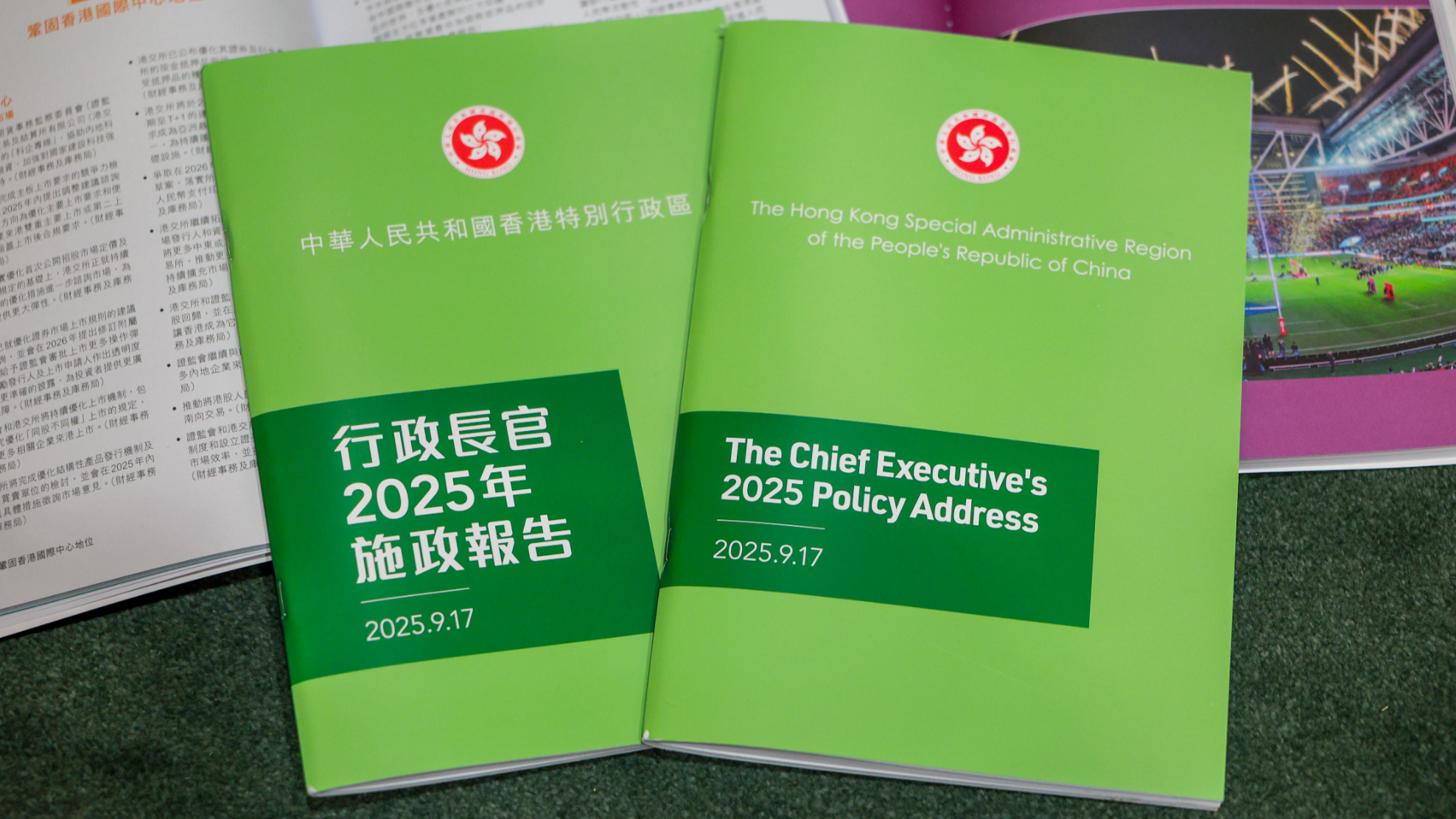
Experts said the Hong Kong Special Administrative Region government’s latest Policy Address has outlined clearer and more focused strategies for the city’s integration into the Guangdong-Hong Kong-Macao Greater Bay Area (GBA), aiming to effectively harness its strengths to drive and steer the cluster’s development.
Highlighting the SAR’s project-based endeavor to improve the flow of market factors, they urged further easing in the movement of scientific data and talent to fuel technological innovation.
Fan Kwok-yuen, assistant professor at The Hang Seng University of Hong Kong, said the Policy Address defines the Greater Bay Area not just as a separate collaborative region for Hong Kong, but as the primary arena for the city to leverage its core advantages and achieve economic advancement.
READ MORE: HK society: Policy Address 'practical, breaks new ground'
The Policy Address explicitly emphasizes the need to harness Hong Kong’s strengths in industrial cooperation, financial connectivity, logistics infrastructure, and professional services, he added.
For example, relying on the metropolis’ core value of supporting mainland enterprises to go global, the Policy Address pledges to attract more mainland enterprises to establish Corporate Treasury Centers and regional headquarters in Hong Kong.
Highlighting the role of the Northern Metropolis, the Policy Address proposes a slew of innovative initiatives to speed up its development. Fan views this as a crucial transformation for the project to shift from a long-term regional plan to a core development engine driving Hong Kong’s future industrial upgrading and deeper integration into the Greater Bay Area.
Progressing beyond framework construction, the Hong Kong government’s policies related to Greater Bay Area development have entered a new period characterized by substantial projects aimed at fostering deeper integration, Fan said.
The new policy initiatives demonstrate a clear “project-driven” approach, including speeding up the development of Hong Kong International Airport’s Dongguan Logistics Park and expanding Payment Connect’s livelihood-related remittance function.
Among the new policies, Victor Kwok, deputy research director of think tank Our Hong Kong Foundation, said the plan for Hong Kong stock exchange and other exchanges in the Greater Bay Area to develop new businesses such as commodity trading and carbon trading is quite promising.
Hong Kong enjoys significant advantages in assisting green projects with financing, and the collaboration potential with Southeast Asian countries and partners involved in the Belt and Road Initiative (BRI) is also promising, Kwok said, expressing the hope that the city can leverage its strengths in setting standards to develop pilot projects within the green finance sector.
Fan expressed his support for measures aimed at facilitating the safe cross-boundary flow of data, emphasizing the significance of data in strengthening key industries like artificial intelligence (AI), fintech, and biomedicine.
He proposed that the mainland set up a pilot zone near the border area, where specific types of data — such as research and medical data — can be freely shared under registration and oversight. He believes this will help attract leading global organizations and companies in AI model training and drug development to set up operations.
Also aiming to enhance the cross-boundary flow of scientific resources, Kwok called for policy advancement in facilitating the movement of biotechnological samples and data, as well as pilot programs to support the employment of scientific talent in both Hong Kong and the mainland.
Guo Wanda, executive vice-president of the China Development Institute, said the Hong Kong government’s efforts to promote the flow of key production factors are highly significant for the Greater Bay Area’s market integration and scientific research transformation.
Last Thursday, the State Council announced a pilot reform plan for market-based allocation of production factors in nine mainland cities of the Greater Bay Area. Guo also advocates greater support from the central government in removing barriers to the free flow of these factors within the cluster.
READ MORE: HK to boost global hub ambitions with education pushes
The Policy Address also vowed to enhance support for Hong Kong seniors to retire in Guangdong province, including a monthly subsidy of HK$5,000 ($643) for low-income residents.
Given the growing numbers of Hong Kong people living on the mainland, the experts urged greater facilitation, especially in social security and cross-boundary medical service.
Kwok suggested expanding the use of the Health Care Voucher Scheme in the mainland beyond hospitals, as well as introducing more medical insurance services that allow for reimbursement of medical expenses incurred on the mainland.
Contact the writer at bingcun@chinadailyhk.com


